NI's licensing laws: What do they mean for pubs and punters?
- Published
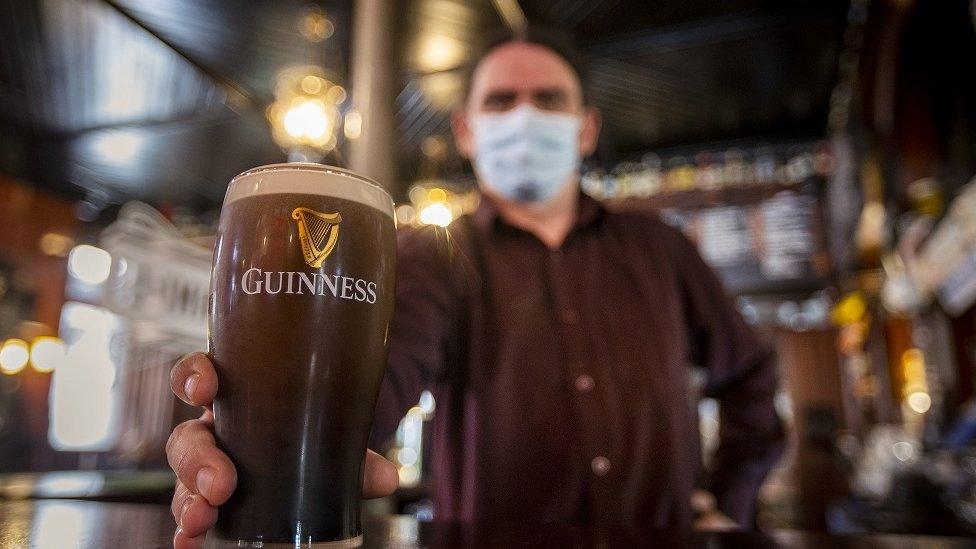
Change is coming to the way alcohol is sold in Northern Ireland and how long pubs and clubs can open.
Many of the long-awaited new rules - described as the biggest change to Northern Ireland's licensing laws in a generation - will be introduced from 1 October this year after legislation passed its final hurdle at Stormont.
But what exactly do they mean for you, the punter?
BBC News NI looks at how things are going to change, how we got here - and how Northern Ireland now compares to the rest of Great Britain and the Republic of Ireland.

How are Northern Ireland's licensing laws changing?
The new rules affect a lot of areas - from supermarket in-store promotions to drinking pints in a cinema and even more obscure measures, such as reclassification of angostura bitters, a cocktail ingredient, as an "intoxicating liquor".
But the major changes that will affect customers are those to pub opening hours.
The bill, nine years in the making, is the first major change to Northern Ireland's licensing laws since 1996.
Described by the minister in charge of the bill, Deirdre Hargey, as a significant "modernising step", the Licensing and Registration of Clubs (Amendment) Bill brings many of Northern Ireland's rules around alcohol sales in line with the rest of the UK and the Republic of Ireland.
How long will pubs and clubs be allowed to serve alcohol?
Under the new laws, from 1 October 2021, pubs and clubs will be able to serve alcohol for an extra hour almost every weekend - up until 02:00, instead of 01:00.
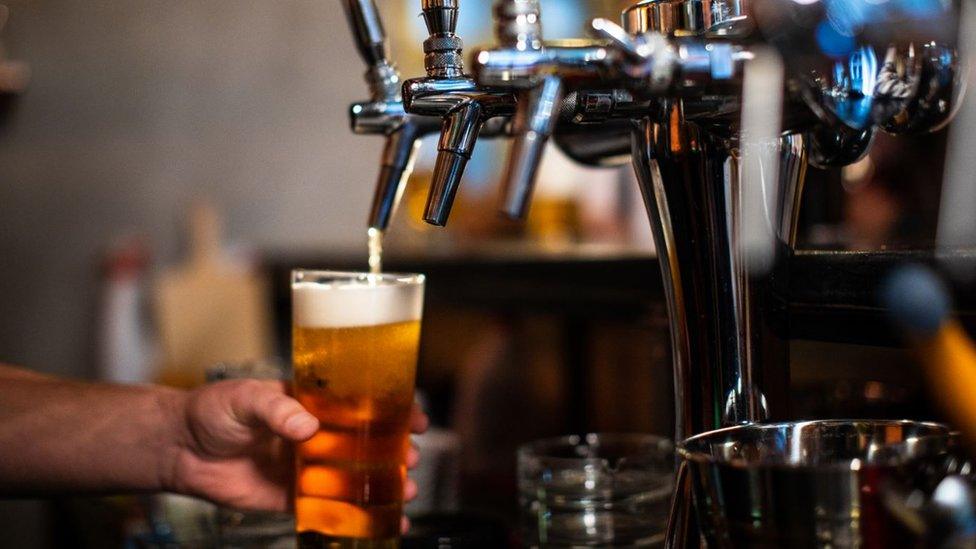
Pubs in Northern Ireland will be able to serve alcohol until 02:00 on most weekends and open as normal at Easter under the new bill
Likewise, drinking-up time - the period which customers have to finish their final drinks and leave the pub - is also being extended to an hour from half an hour previously, meaning pubs and clubs can stay open to 03:00.
In England and Wales, pubs generally open from 11:00 to 23:00, although there are occasional relaxations as well as the availability of 24-hour licences, which allow pubs to stay open 23 hours a day. However, true 24-hour licences, and pubs which open almost every hour of the day, are rare.
What will Northern Ireland's Easter pub opening hours be?
This aspect represents another major change.
Currently pubs and clubs can only serve alcohol between 17:00 and 23:00 on Good Friday, and also have to stop serving at midnight on Holy Thursday and Holy Saturday, and 22:00 on Easter Sunday.
Under the new rules, those restrictions will go and pubs and clubs will operate as normal during Easter.
In the Republic of Ireland, similar rules banning the sale of any alcohol on Good Friday were reversed in 2018.
There are no specific Easter restrictions to alcohol sales in the rest of Great Britain.
Hospitality organisations and pub owners have long called for a change to the rules, arguing that such restrictions damaged trade and tourism.
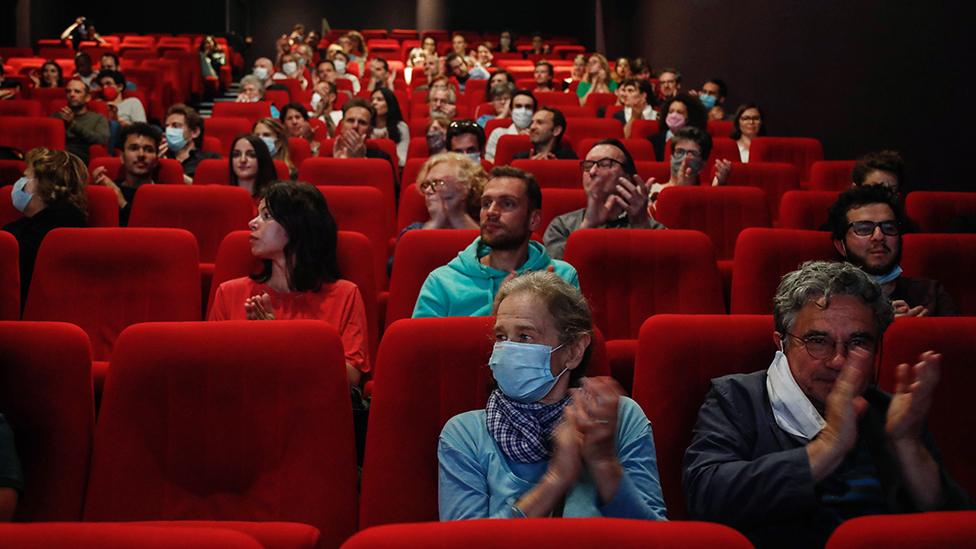
Can I buy alcohol at the cinema in Northern Ireland?
It's now a possibility. Previously, cinemas were not allowed to hold licences to sell alcohol but, under the new rules, they can now apply for one.
Michael McAdam, from Northern Ireland cinema chain Movie House, said he didn't anticipate "massive sales" but that it was about "giving people choice".
And will Northern Ireland's craft breweries and drink producers now be allowed to sell alcohol directly?
Yes - previously if you were touring or visiting a local craft brewery or distillery, you could not sample or buy products on site where they are made. This was because breweries were not allowed to apply for a licence to sell alcohol.
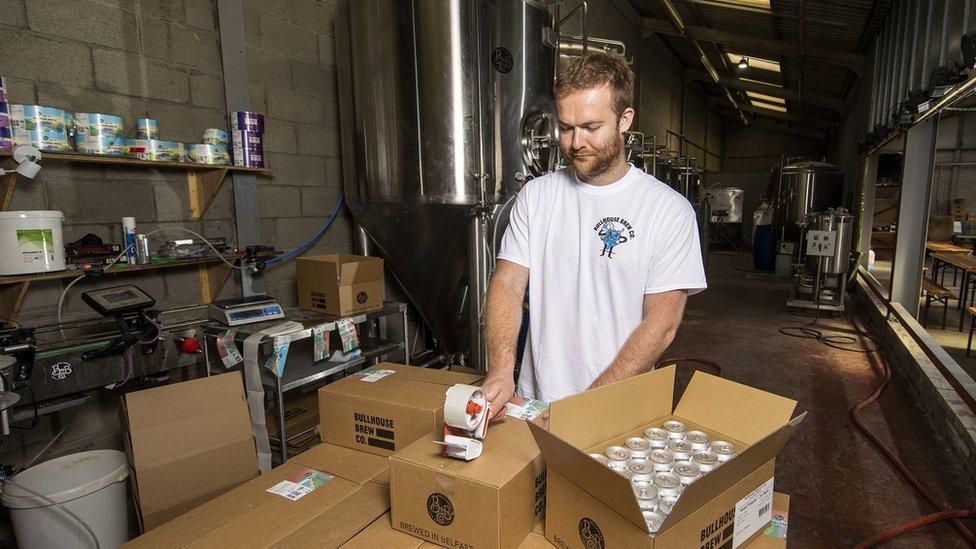
Those in the craft drinks industry, such as William Mayne from Belfast-based Bullhouse Brew Co, will be able to obtain a licence to sell alcohol directly to the public on site
Northern Ireland's growing craft drinks industry has sought changes in this area - and now that change is coming.
The new rules allow drink producers to gain a licence to sell off-sales alcohol and, in limited circumstances, open taprooms so customers can buy drink alcohol on site.
What is the 'surrender principle'? Why have I heard about it and why is it important?
Ah, this is one of the more niche - but still important - aspects of Northern Ireland's licensing laws.
The surrender principle means that no new alcohol sale licences can be granted unless another one is surrendered.
In reality, this means that if you want to open a pub or an off-licence, you have to obtain a licence from someone who already holds one.
This rule - which doesn't exist in the Republic of Ireland or the rest of Great Britain - dates back almost 120 years, to a time when the sale of alcohol on the island of Ireland faced far less regulation. The rise in alcohol consumption, and alcohol-related problems, led to controls on how many premises could sell drink.
An amendment to the new bill, introduced by SDLP assembly member Matthew O'Toole, means the Department for Communities must begin an independent review within the next year on a number of licensing measures, including the surrender principle.
He has said the review is not about "automatically changing the system", but is about "looking at the evidence, gathering information and examining options for possible reform".
However, Hospitality Ulster chief executive Colin Neill has previously said members were "terrified" by the prospect of change. For many pub owners, a hard-to-obtain licence is seen as a retirement nest egg.
No doubt we'll be hearing more on all this as the review gets under way.
All these changes make it sound like the rules around buying alcohol are easing - are any rules getting stricter?
Yes - there are other changes in licensing rules which are tighter. Supermarkets will be restricted on where they can put in-store advertisements for alcohol, for instance.
Likewise a voluntary code of practice for drinks promotions will be replaced with legal requirements that retailers and licenced premises must follow.
Why are Northern Ireland's licensing laws changing now?
You may have already terms such as "archaic" or "out-of-date" when it comes to Northern Ireland's licensing laws.
While the Licensing Act of 2003 was a major overhaul of laws in England and Wales, Northern Ireland's rules in this area have remained more or less unchanged since 1996.
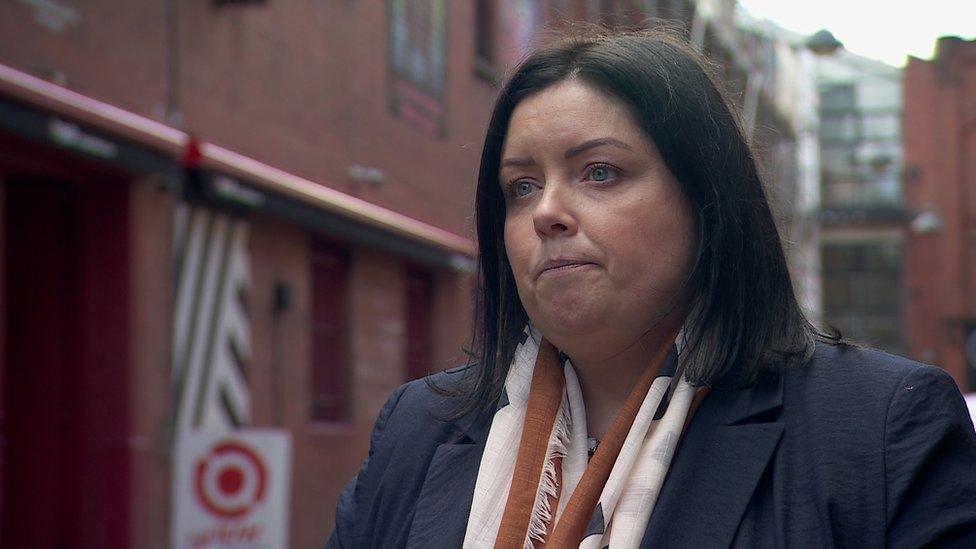
Communities Minister Deirdre Hargey has said the new laws are a "balanced piece of legislation"
Communities Minister Deirdre Hargey said the new laws are "balanced" and that there was a need "to modernise in 2021".
Likewise, industry organisations such as Hospitality Ulster have long called for "significant change" that would bring Northern Ireland's laws closer in line with those in the Republic and Great Britain.
Why did the law change take so long? Did people oppose it?
It did take a long time - a consultation on these laws first happened in 2012, so it's been nine years legislatively. Discussions on it have been going on even longer.
A bill was presented at the Northern Ireland Assembly that would have led to licensing law changes in 2016, but it was scuppered by the assembly's collapse in 2017.
The new bill is similar to the 2016 version and involved a fresh consultation, held from October to December 2019.
The legislation then made its way through the Northern Ireland Assembly, with a further consideration stage of the bill on 21 June leading to a mammoth Stormont session, which didn't end until close to 03:00 BST.
Politically, the bill's biggest opponent has been TUV leader Jim Allister, who said extended pub opening hours could cause an increase in public order issues and put further strain on the health service. He likewise said the removal of restrictions at Easter was an "unnecessary destruction of any deference" towards the period.
Concerns have been expressed on the implications the bill will have on healthcare - an explanatory paper published by Stormont, external notes that the the number of alcohol-related deaths in 2018 was lower than those in 2017, but still 16.9% higher than a decade before.
It also estimated the cost to the Northern Ireland economy caused by excessive alcohol consumption to be in the region of £900m per year.
However, Communities Minister Deirdre Hargey has hailed the bill as a "balanced piece of legislation" which is also "mindful in terms of the health and safety impacts".
Related topics
- Published29 June 2021
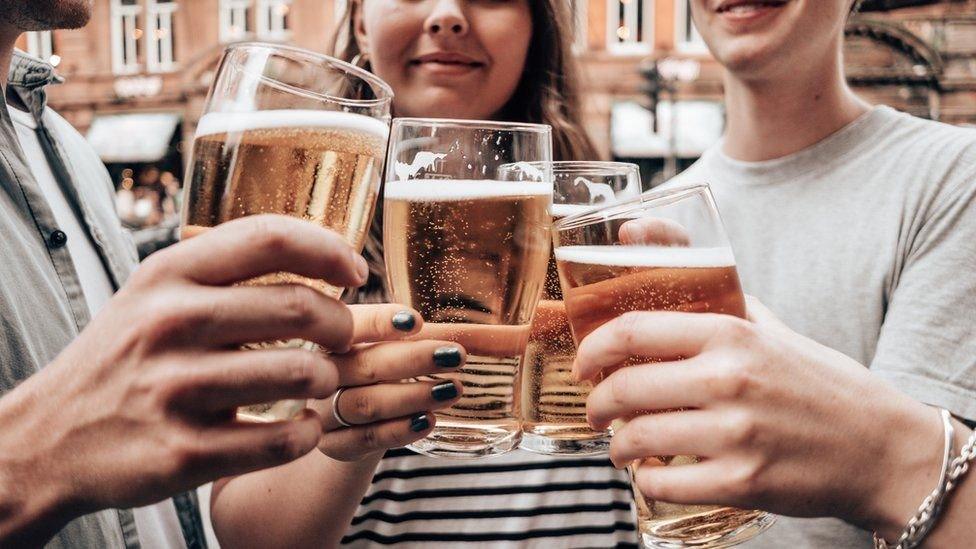
- Published9 June 2021
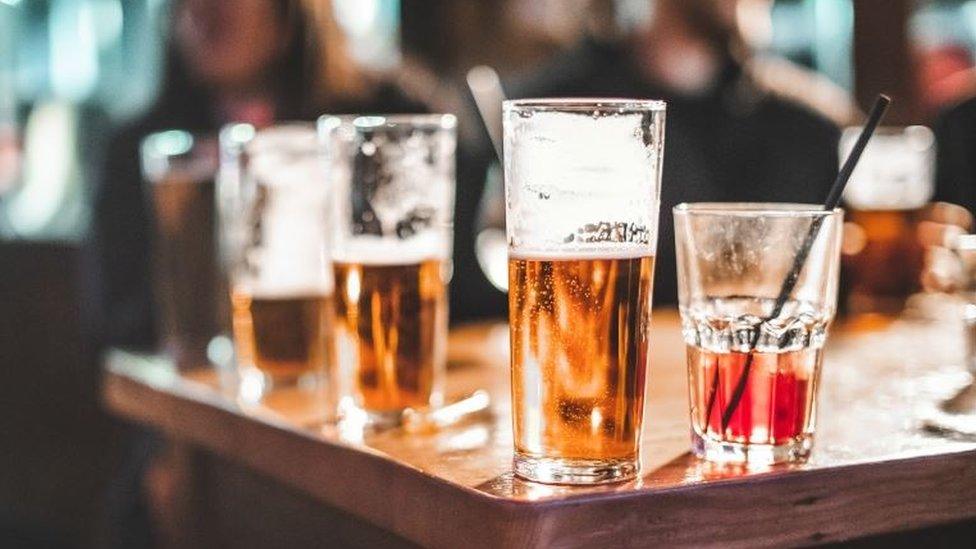
- Published22 April 2021
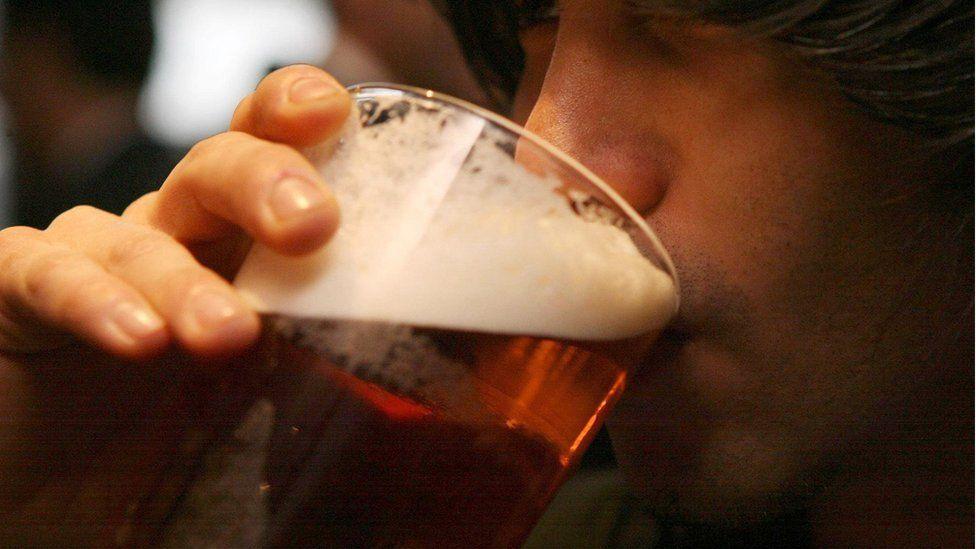
- Published4 February 2021
